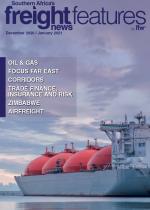Countries in sub-Saharan Africa are far too dependent on one source of export, especially in the oil and gas sector.“These countries are heavily dependent on oil and gas and are impacted significantly when price or demand – or both as we have seen since the outbreak of Covid-19 – drops,” said Dr Sara Vakhshouri, founder and president of SVB Energy International. “This introduces very real economic vulnerability. Their foreign exchange is completely reliant on their exports. In countries like Nigeria and Angola oil revenue is the only source of foreign exchange.”This was further impacted by the fact that many of the countries on the continent did not have the ability to sufficiently fund their own projects or further exploration for oil and gas resources from their own coffers, making them even more vulnerable.Several African countries have realised the danger of the situation and are taking active steps to reduce their dependence on oil in particular.Nigeria has launched a five-year plan that will see the country wean itself off oil in an effort to rescue its economy.The plan, developed and released by the Central Bank of Nigeria (CBN) in November, is designed to reduce the country’s debt burden, control inf lation, and raise the employment rate. Angola has also started a process of reducing its dependence on oil and has announced plans to sell a stake of the state oil company, Sonangol. This is targeted for completion by the end of 2021 or early 2022.

